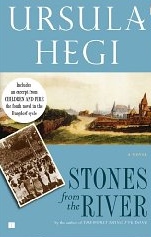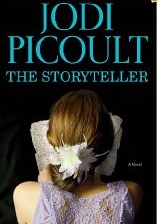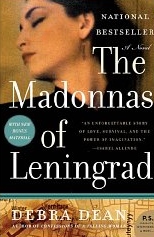Last week I talked about the disadvantages of fencing yourself into reading categories such as “mystery,” “romance,” etc. and about the rewards of reaching beyond those walls to find books that sweep readers into characters lives and move them to a different perception of the world or themselves. I discussed my own writing and reading topics—characters caught up on the crises of our times. “Our times” here means in my lifetime, of course, from the Depression to the current tech revolution and world conflicts.
The problem with offering such stories is that the topics have been done to death. Ideological positions frozen in time have become stale, and fiction readers too often find themselves preached to. I throw down any book driven by the author’s ideology. In fact, I throw it away. So the novels I offer break out of the worn out ideological boxes, free us from them, tell a story that needs to be told, move us to fresh perceptions.
Today’s topic is World War II and the Holocaust, and I gave Schindler’s List as an example of a story that breaks out of common perceptions of the German people at this time in history. I offer these additional titles:
 Ursula Hegi. Stones from the River
Ursula Hegi. Stones from the River
The story of a woman living in a small town in Germany during the rise of Hitler. She is a dwarf, but this is not a story of a victim. Rather, she tells it simply as a resident of her town; however, she is clearly both insider and outsider. These people are no different from you and I. The story gave me a very different feel for the German consciousness during that period and why the nature of Hitler broke on the German population so slowly.
 Jodi Picoult, The Storyteller About a woman grieving for her mother’s death, and in befriending a fellow member of her grief support group finds herself carried into the past. Her own story intertwines with that of her grandmother, a Holocaust survivor, andthat of the officer who ran the concentrations camp. The intertwining stories confound the neat lines between good and evil and return again and again to these questions: What is the worst thing you have done? How do you live with it? What does it take to forgive? To be forgiven? I found this book compelling, first because Picoult is such a master at interweaving tales—a talent I aspire to—and secondly, because my latest novel, Home Fires, also reaches into the murky depths where right and wrong are far from clear and resolution forces us beyond normal capacities
Jodi Picoult, The Storyteller About a woman grieving for her mother’s death, and in befriending a fellow member of her grief support group finds herself carried into the past. Her own story intertwines with that of her grandmother, a Holocaust survivor, andthat of the officer who ran the concentrations camp. The intertwining stories confound the neat lines between good and evil and return again and again to these questions: What is the worst thing you have done? How do you live with it? What does it take to forgive? To be forgiven? I found this book compelling, first because Picoult is such a master at interweaving tales—a talent I aspire to—and secondly, because my latest novel, Home Fires, also reaches into the murky depths where right and wrong are far from clear and resolution forces us beyond normal capacities
.
 Debra Dean, The Madonnas of Leningrad
Debra Dean, The Madonnas of Leningrad
This aging woman has lost her grip on the present and is facing a nursing home. But in the blink of an eye, she carries us back to the siege of Leningrad and the days when she was a starving young Russian watching for incoming German planes from the rooftop. Not only do we live, with her, the hardship and heroism of those residents, we also leave with a powerful and very different understanding of the lives our aged carry within.

Comments are closed.